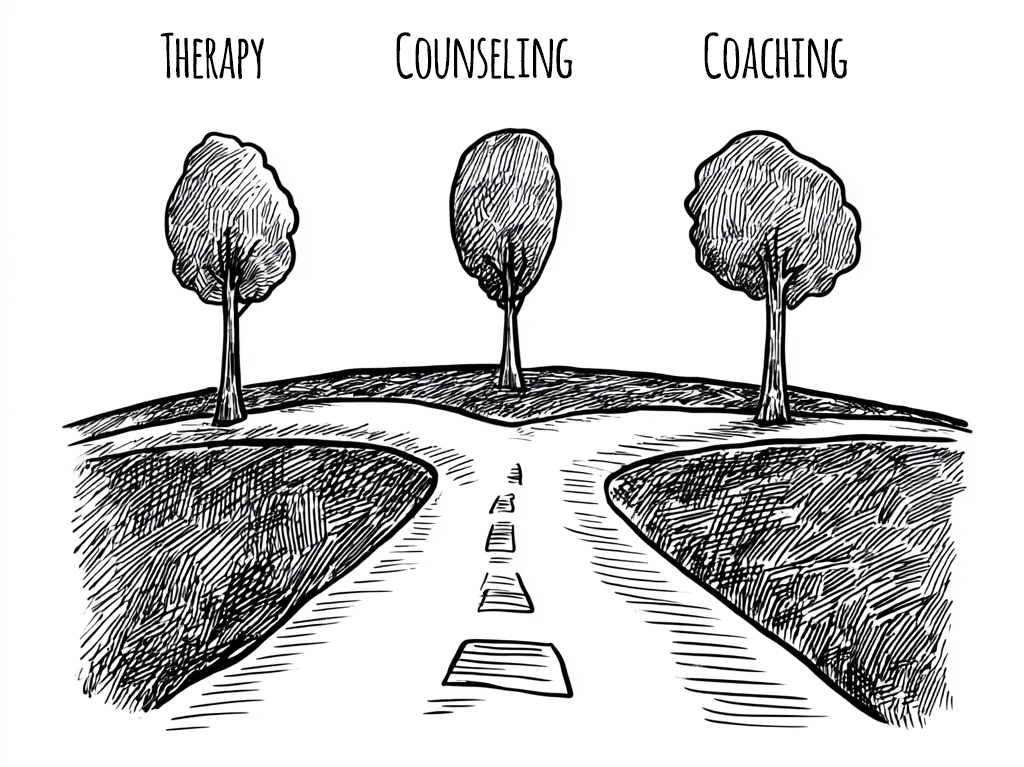Do I Need a Coach, a Therapist, or a Counselor?

Adulting is hard. It’s validating to hear. It’s validating to say. And it’s entirely true. Every one of us is a microcosm—woven from our own experiences, perspectives, traumas, and energies. So, it’s no wonder that, at times, we feel alone, unseen, confused, angry, lost… even invisible.
Add to that the constant noise around us—messages telling us what success looks like, what’s “normal,” and how we should show up in the world. But what if those norms don’t align with your truth? What if your dreams feel out of reach? Or you wake at 3 a.m. with a sharp ping of fear, regret, or the ache of not feeling “enough”?
You’re here because something within you is searching—not for a fix, but for support. For clarity, confidence, and movement. So how do you choose the right guide for the journey ahead?
Let’s explore three powerful options—each with its own strength.
🧠 Therapists
Therapists help you look inward—toward root causes and healing. Their goal is to help you feel better, build self-understanding, and create new habits rooted in that insight. Therapy often includes diagnosis and clinical treatment, requiring an advanced degree and state licensure.
Best for: healing past trauma, managing mental health challenges, processing deep emotional patterns.
🛠️ Counselors
Counselors focus on situational challenges, often specializing in areas like anxiety, ADHD, or addiction. They offer tools and tactics to help you navigate specific problems. Like therapists, most are licensed professionals trained to provide structured support.
Best for: overcoming life hurdles with practical guidance.
🚀 Coaches
Coaches help you build your vision and bring it to life. Coaching is forward-focused—it’s about growing, aligning your actions with your values, and creating meaningful change. While coaches don’t diagnose or treat mental health issues, certified coaches follow ethical standards and training that empower transformational work.
Best for: gaining clarity, momentum, and accountability around goals, transitions, and leadership.
Final Reflection
There’s no single path. Therapy, counseling, and coaching can be complementary—each invites a different kind of healing, insight, and progress. What matters most is choosing support that honors both your present needs and your future vision.
You don’t need to be “fixed.” You need to be heard, empowered, and partnered with—by someone who sees your wholeness and your potential.